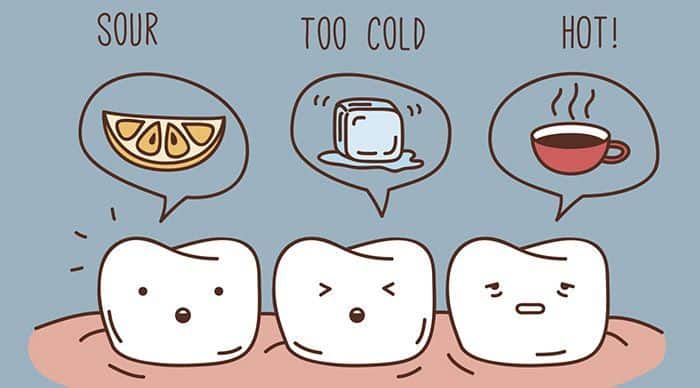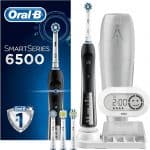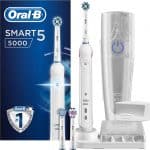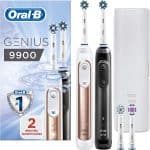Table of Contents
Is there really demand for whitening strips for sensitive teeth? Is it really a big market? If you’ve ever tried whitening your teeth using whitening strips, you understand the tingling, painful sensation that accompanies it. This is as a result of increased teeth sensitivity. It’s attributed to the chemicals present in the whitening agent that irritates your teeth nerves, raising the teeth sensitivity.
While achieving a brighter, whiter smile might help boost your self-confidence in social places and make you feel great, you may wonder if it’s worth undergoing the above discomfort.
But before you give up on whitening your teeth for the fear of teeth sensitivity, it’s important to understand that there are specially formulated whitening strips for sensitive teeth. Yes, whitening strips specially formulated for people with sensitive teeth like you…
How Whitening Strips for Sensitive Teeth Work?
Most teeth whitening strips use hydrogen peroxide as the active ingredient. The level of concentration of this component, plus the length of time you put the strip on your teeth determines the degree of teeth sensitivity you’re likely to get.
Whitening strips for sensitive teeth are formulated based on the above fact. The manufacturer focuses on the level of hydrogen peroxide and the length of applications.
Get The Best Whitening Strips For Your Teeth
If it very important that you get the best whitening strips for your teeth. Thankfully, with many people suffering from sensitive teeth, there are whitening strips for sensitive teeth and they work!
The level of hydrogen peroxide
The higher the level of hydrogen peroxide percentage, the more you’ll suffer from teeth sensitivity. Peroxide works by making your teeth surfaces porous. This irritates the pulpal nerves, and the result is increased sensitivity for some people.
You’ll find that most whitening strips for sensitive teeth have lower hydrogen peroxide levels (between 5% and 6%). This is less likely to subject your teeth to sensitivity.
Application time
The time of application is directly related to the concentration of hydrogen peroxide. The longer you expose your teeth to the whitening strips, the longer it interacts with the ingredient.
Again, the manufacturer tried to reduce the application time to lower the risk of teeth sensitivity. Whitening strips meant for people with sensitive teeth require you to apply them for a shorter period (the shortest being 5 minutes).
Additionally, these whitening strips come with enamel-safe ingredients. Unlike the others, these whitening strips do not remove the protective protein layer on your teeth surface. This prevents opening of pores which might further irritate the nerves and raise sensitivity.
This is not to say that after using these whitening strips, you’ll be completely free from teeth sensitivity. You ought to take some extra measures to minimize this pain.
One of the coolest ways to reduce teeth sensitivity is by sticking to beverages at room temperature. If you take extremely hot/cold drinks, you might be preparing yourself for a painful experience.
Additional Tips to Help Soothe Your Sensitivity:
- If you suffer from sensitive teeth, stick to brushing your teeth before applying the whitening strips. Not after. Brushing right after using the whitening strips will further open up your further open up your teeth pores, expose the nerves, and cause sensitivity.
- After removing the whitening strips, rinse your mouth with water or any pH rebalancing mouthwash. This helps restore your oral pH to normal, and your teeth will start recovering.
- Observe the length of the application indicated by the manufacturer. Trying to extend the duration does not make your teeth whiter. Rather, it increases your teeth sensitivity!
- Another great way to reduce the sensitivity is by applying calcium-based desensitizing toothpaste to your teeth after removing the strips. Allow the toothpaste to settle for a few minutes and then spit it. Don’t rinse for around 30 minutes following this application.
Coating your teeth with this product helps close the open pores on your teeth and lower the level of sensitivity. On top of this, it re-mineralizes your teeth enamel, improving the whitening process.
Final resort: If you’ve tried all the above tips and you still experience teeth sensitivity after teeth whitening, something isn’t right. You need to consult a dental professional to uncover the real problem behind your sensitive teeth.
Final Thoughts
Whitening strips for sensitive teeth serves as a great option for folks who want to whiten their teeth without hurting their sensitive teeth. They’re formulated to bear lower concentrations of the whitening agent. They’ve got a shorter application time. They also feature 100% enamel safe ingredients. This goes a long way in minimizing the chances of teeth sensitivity.
Note that whitening teeth sensitivity is a temporary experience that fades with time and does not cause permanent damages to your teeth.













